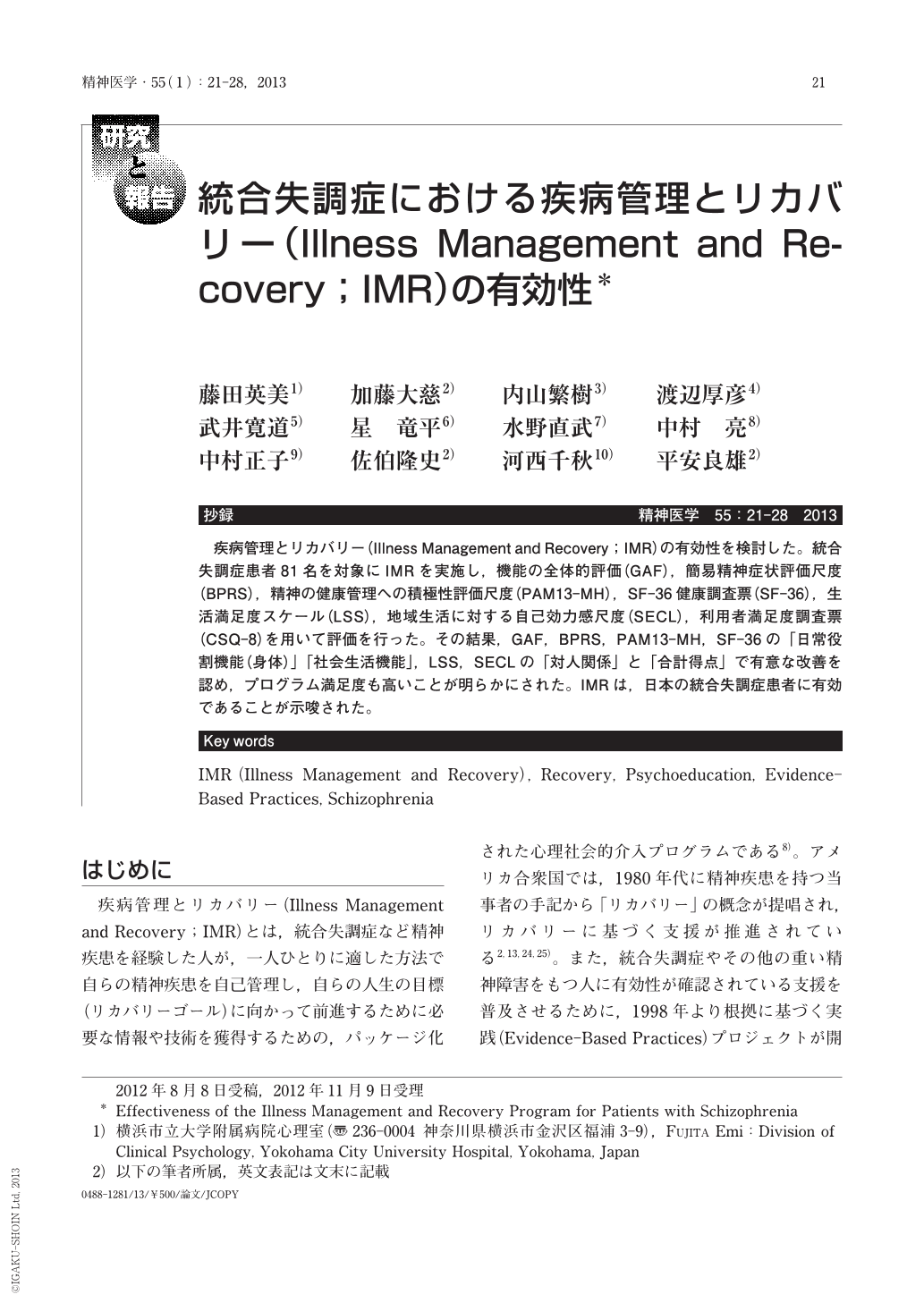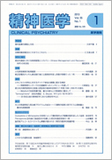Japanese
English
- 有料閲覧
- Abstract 文献概要
- 1ページ目 Look Inside
- 参考文献 Reference
- サイト内被引用 Cited by
抄録
疾病管理とリカバリー(Illness Management and Recovery;IMR)の有効性を検討した。統合失調症患者81名を対象にIMRを実施し,機能の全体的評価(GAF),簡易精神症状評価尺度(BPRS),精神の健康管理への積極性評価尺度(PAM13-MH),SF-36健康調査票(SF-36),生活満足度スケール(LSS),地域生活に対する自己効力感尺度(SECL),利用者満足度調査票(CSQ-8)を用いて評価を行った。その結果,GAF,BPRS,PAM13-MH,SF-36の「日常役割機能(身体)」「社会生活機能」,LSS,SECLの「対人関係」と「合計得点」で有意な改善を認め,プログラム満足度も高いことが明らかにされた。IMRは,日本の統合失調症患者に有効であることが示唆された。
Illness Management and Recovery (IMR) is a curriculum-based approach designed to provide individuals with mental illness the information and skills necessary for effective illness management;it also helps them work towards achieving personal recovery goals. The present study was executed in order to clarify the effectiveness of the IMR program among Japanese patients with schizophrenia. Eighty-one patients with schizophrenia who were receiving standard psychiatric treatment were recruited. The participants were asked to complete the following assessments before and after participating in the IMR program:Global Assessment of Functioning, Brief Psychiatric Rating Scale, Patient Activation Measure 13 for Mental Health, Medical Outcomes Study 36-Item Short-Form Health Survey Acute Version, Life Satisfaction Scale, Self-Efficacy for Community Life Scale for Schizophrenia, and Client Satisfaction Questionnaire-8. Our findings demonstrate that patients, following participation in the IMR program, display significant improvement in functioning, symptom severity, self-reported activation in self-management, quality of life, satisfaction, and self-efficacy in community living;patient satisfaction was also high. In conclusion, the IMR program was effective in Japanese patients with schizophrenia.

Copyright © 2013, Igaku-Shoin Ltd. All rights reserved.


